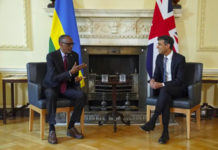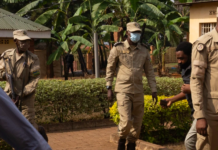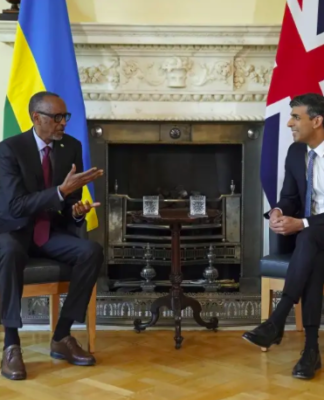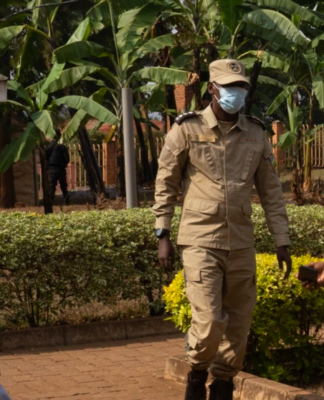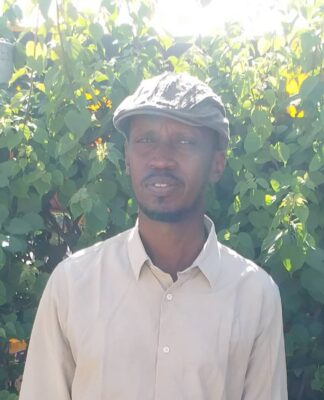When Seremani Mukundabantu asked me to comment on how and why Rwanda is painted to be corruption-free in the latest Transparency International’s (TI)2013 Global Corruption Barometer (GCB), I initially thought it would be a waste of time. But on second thoughts, I am glad Seremani asked. On deeper analysis of GCB, I find it may indicate survival instincts among Rwandans as opposed to absence of corruption – something I wish to share here.
The main reason why I was not initially keen on analysing GCB is that I find these kinds of reports to be simplistic in their definition of corruption. They concentrate on such things as bribing to access public service for example in the judiciary, police, registry/licencing, education and health sectors. I call this type of corruption “routine.”
But by concentrating on “routine” corruption, the most devastating forms of corruption are left out, including what I may term high-level and systemic institutional corruption that give advantage to ruling elites. Some of the practices used in the systemic institutional corruption do not readily appear to be “illegal” but they have immoral and disastrous impact on societies especially in poor countries. An example in Rwanda is the widespread practices where the RPF government awards tenders and contracts to RPF companies; where the RPF government rents luxurious executive jets from an RPF firm to transport the president; where Rwandan social security funds finance RPF company-formations. Such widespread or high-level systemic malpractices that are embedded in national institutions rather than individual corruption do not feature in Transparency International and its Global Corruption Barometer (GCB).
WHAT 2013 GLOBAL CORRUPTION BAROMETER CLAIMS ABOUT CORRUPTION IN RWANDAN COMPARED TO OTHER COUNTRIES
The 2013 Global Corruption Barometer is based on its survey that involved 114,000 people in 107 countries, including Rwanda.
But here is what is most revealing. The 2013 Global Corruption Barometer is unlike previous Transparency International’s corruption index. While the corruption index relied on expert analysis, the 2013 Global Corruption Barometer relies on opinions from the general public on corruption. In other words, the 2013 Global Corruption Barometer does not pretend to be “scientific” but a collection of opinions of 114,000 people in 107 countries, including Rwanda. In Rwanda face-to-face interviews were conducted with 1,000 people for this exercise.
The findings in Rwanda are amazing and amusing. One of the questions the respondents had to answer was:
* “To what extent do you see the following categories to be affected by corruption in your country? Please answer on a scale from 1 to 5, where 1 means ‘not at all corrupt’ and 5 means ‘extremely corrupt.'” http://www.transparency.org/gcb2013
A. Political parties
B. Parliament/legislature
C. Military
D. NGOs
E. Media
F. Religious bodies
G. Business/private sector
H. Education system
I. Judiciary
J. Medical/health services
K. Police
L. Public officials/civil servants
Here are the Rwandan averages for each category:
A. Political parties: 1.2
B. Parliament/legislature: 1.2
C. Military: 1.1
D. NGOs: 1.6
E. Media: 1.3
F. Religious bodies: 1.3
G. Business/private sector: 1.7
H. Education system: 1.4
I. Judiciary: 2.0
J. Medical/health services: 1.3
K. Police: 2.1
L. Public officials/civil servants: 1.7
Let us look at the case of Canada, Germany and Switzerland for a comparison with Rwanda.
Here are the Canadian averages for each category:
A. Political parties: 3.8
B. Parliament/legislature: 3.4
C. Military: 2.6
D. NGOs: 2.7
E. Media: 3.2
F. Religious bodies: 3.0
G. Business/private sector: 3.4
H. Education system: 2.7
I. Judiciary: 2.8
J. Medical/health services: 2.7
K. Police: 2.9
L. Public officials/civil servants: 3.2
Here are the German averages for each category:
A. Political parties: 3.8
B. Parliament/legislature: 3.4
C. Military: 2.9
D. NGOs: 3.0
E. Media: 3.6
F. Religious bodies: 3.1
G. Business/private sector: 3.7
H. Education system: 2.7
I. Judiciary: 2.6
J. Medical/health services: 3.4
K. Police: 2.7
L. Public officials/civil servants: 3.4
Here are the Swiss averages for each category:
A. Political parties: 3.3
B. Parliament/legislature: 2.8
C. Military: 2.6
D. NGOs: 2.5
E. Media: 3.1
F. Religious bodies: 2.7
G. Business/private sector: 3.1
H. Education system: 2.7
I. Judiciary: 2.2
J. Medical/health services: 2.6
K. Police: 2.3
L. Public officials/civil servants: 2.7
What is the meaning of all this? According to the 1,000 Rwandans interviewed for the 2013 Global Corruption Barometer, there is almost no corruption in Rwanda. When we compare Rwandan to Canadian, German and Swiss public opinions, therefore, Rwanda is heaven on earth. Canada, Germany and Switzerland are way too corrupt when compared to squeaky-clean Rwanda!
RWANDA: THE LEAST CORRUPT NATION IN THE WORLD, OR TACTFUL CITIZENS?
If you believe the above Rwandan public opinion, you need urgent medical help. Get real!
If for example you are in Rwanda today, and you are asked to give an opinion on the levels of corruption in political parties, unless you are suicidal, you will not dare touch such issue. Who would dare discuss openly the fact that RPF owns the largest chunk of the Rwandan economy based on insider information where the RPF government routinely contracts RPF firms in the broad daylight? In any event, what other political parties are there in Rwanda, except those run by RPF stooges?
Which sane Rwanda would dare to frankly discuss corruption in the military?
Which sane Rwandan would have the nerve to give the interviewer the true picture of Rwandan Public officials and civil servants in terms of corruption or delivery?
Rwandans know they live in “the North Korea of the thousand hills” and therefore have developed tactics to survive day-to-day state repression and domination. The citizens tell the regime what it wants to hear. Likewise, Rwandans will share flattering comments about how great and clean the regime is with any visitor who wishes to listen. Yes indeed, Rwandans will tactfully say anything to live another day. And that is exactly what the results of the global corruption barometer tell us – how Rwandans survive an iron-fisted regime.
David Himbara

